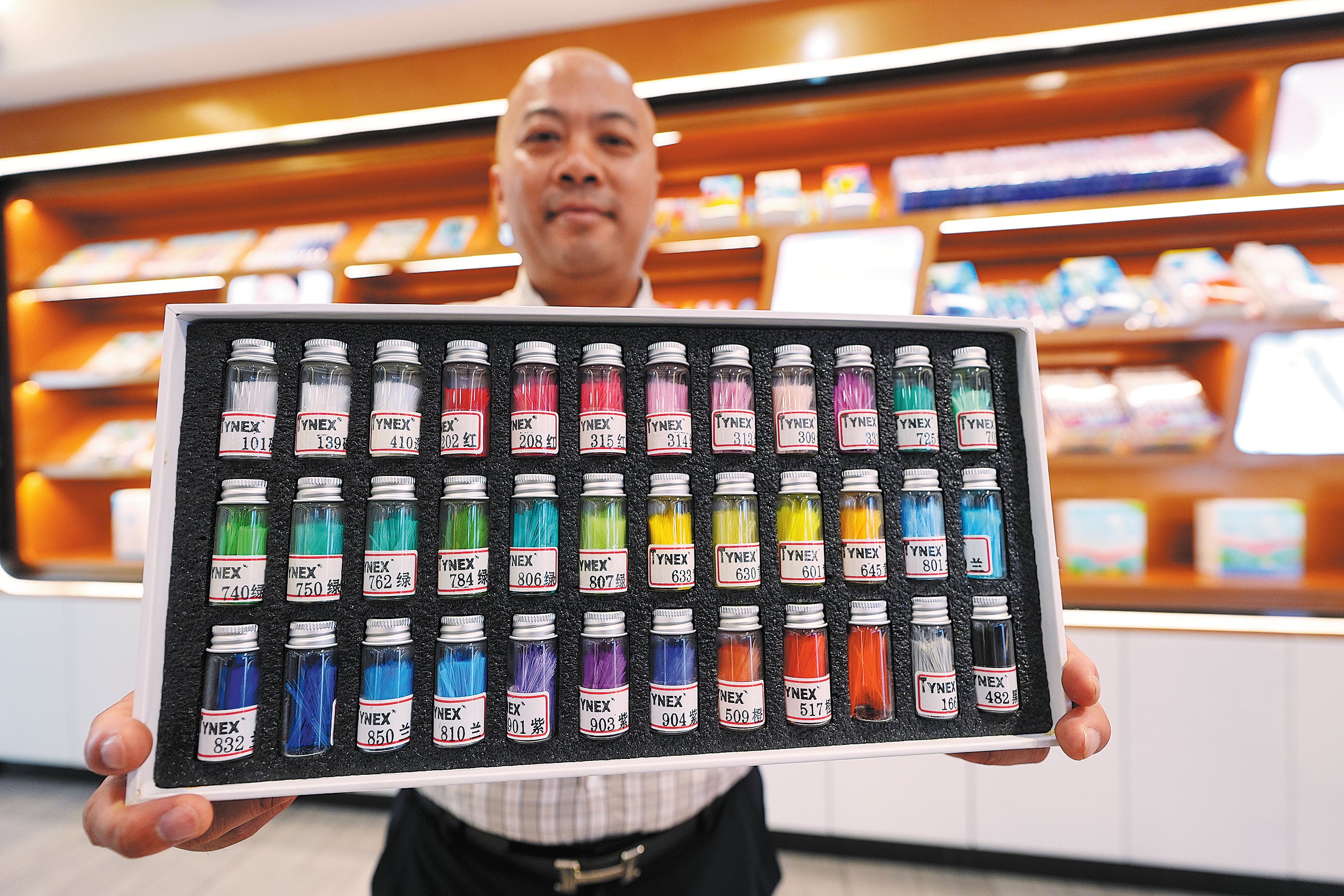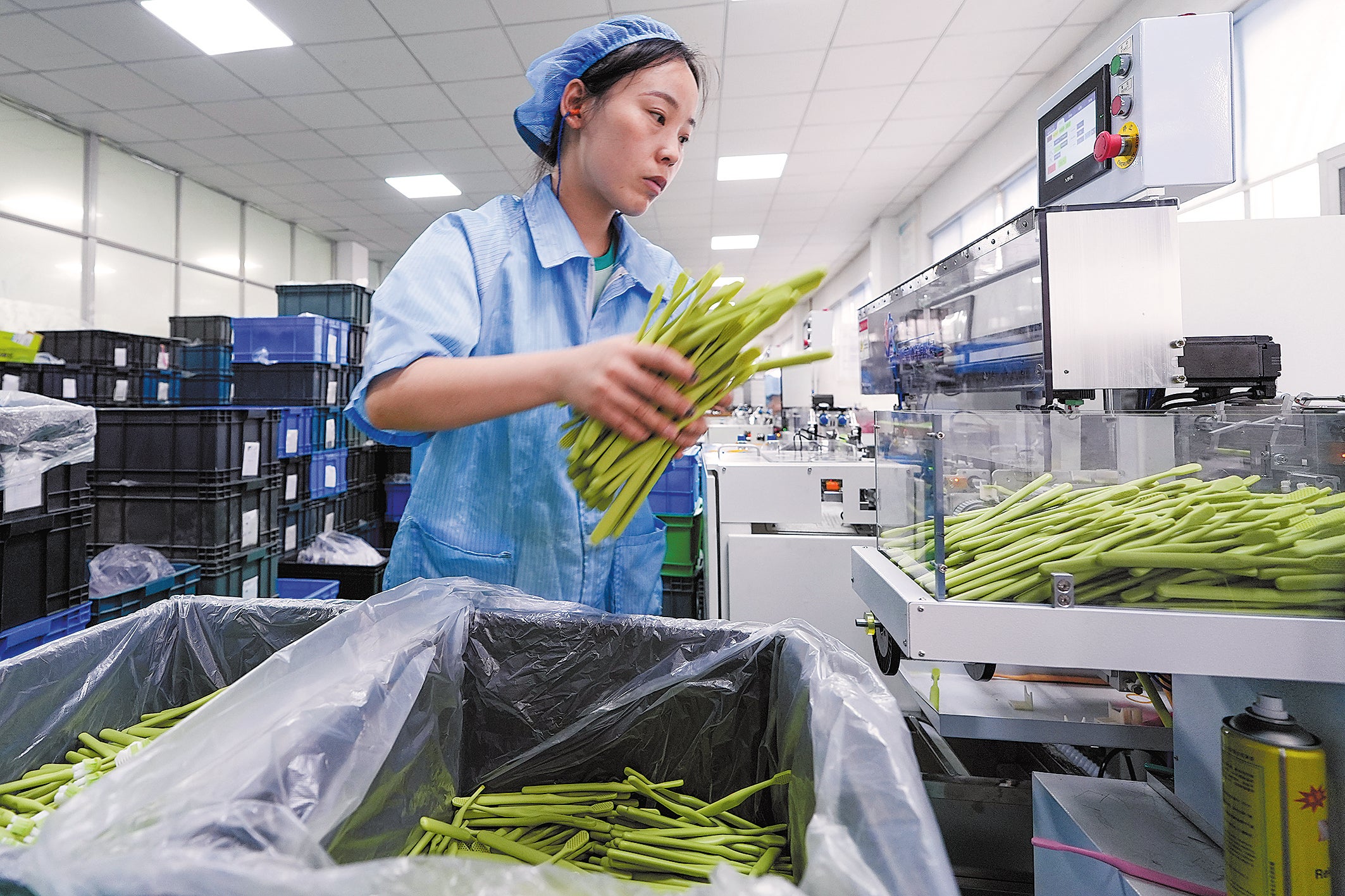Toothbrush hub bristles with big business
THE ARTICLES ON THESE PAGES ARE PRODUCED BY CHINA DAILY, WHICH TAKES SOLE RESPONSIBILITY FOR THE CONTENTS

Common, affordable and often overlooked, the toothbrush can unspool a fascinating, multibillion-dollar business tale, especially when the story is set in Hangji town of Yangzhou, Jiangsu province.
“Wherever humans reside, there are toothbrushes made in Hangji.” The engraving on a wall at the local toothbrush museum often attracts visitors’ attention. It is not a tall claim. Hangji, a small town of 15 square miles, makes 80 per cent of toothbrushes in China and accounts for 35 per cent of the world’s total.
The town boasts more than 2,000 toothbrush manufacturers and supporting enterprises, including famous brands Colgate, Sanxiao, LMZ and Perfect. They produce more than 7.5 billion toothbrushes annually that are sold to about 80 countries and regions. This makes Hangji the world’s largest toothbrush production base, according to local authorities.
Its journey started about 200 years ago during the Qing Dynasty (1644-1911). Back then, a local farmer, Liu Wanxing, used ox bones for the handle and horsehair for the bristles to make toothbrushes for dignitaries and nobles. He then replaced horsehair with pig bristles to largely reduce costs and sold the product to ordinary people as well. His descendants and apprentices further developed the business. And so it went on till 1976, when the first toothbrush factory was founded. After the launch of China’s reform and opening-up policy in 1978, the number of workshops once reached nearly 10,000.

These days, the penetration rate of toothbrushes has reached almost 100 per cent in China. A toothbrush costing around 10 yuan (£1.09) to 12 yuan (£1.31) can be used for several months. This means, there is no room for significant expansion in this category. With low unit prices, profit margins also tend to be thin, like the handle of the humble toothbrush.
Yet, Hangji toothbrushes’ annual output value is 13 billion yuan (£1.41 billion).
Amid rising global awareness levels of healthy and green lifestyles, characterised by aspects like oral health, Hangji started making high-end, environmentally friendly and intelligent products that have won recognition from picky clients in the Middle East, Europe and the Americas.
That is why staff members on China’s first domestically made polar icebreaker Xuelong2, or Snow Dragon 2, use customised toothbrushes from Hangji.
“Brush bristles with a diameter of only 0.1 millimetres can better care for the gums of expedition team members in polar low-temperature environments. Additionally, considering environmental factors, brush handles produced using polylactic acid materials can biodegrade within three months,” said Li Yang, general manager of Yangzhou Sanfeng Brush Co Ltd, the producer.
Yangzhou Shuguang Toothbrush Factory, founded in Hangji about 40 years ago, collaborated with the National Engineering Research Centre for Nanotechnology and Application to develop a new environmentally friendly toothbrush made from sugarcane refining residue straw, achieving 100 per cent degradation. The toothbrush is sold to dental clinics in European countries such as Germany and Sweden.
Tu Xinye, head of the factory, said its products used to be sold for 0.1 yuan (£0.01) with low added value. It survived through large production and sales. The innovative toothbrush helped it expand to a high-end market as fierce competition marked the low-end, homogeneous market.
Oclean, headquartered in Shenzhen, Guangdong province, built its intelligent factory in Hangji. Operations started in May, and since then it has been producing kids smart toothbrushes that can play songs, remind them to brush again missed areas and provide parents with a report generated using artificial intelligence in the embedded app.
In Hangji, the labour-intensive sector is also transforming towards a digitalised and cost-effective operation mode.
At the green and intelligent factory of Jiangsu Sanxiao Group Co Ltd, 150 robots perform tasks like injection molding and injection gluing.
Besides intelligent robots, the factory boasts automated assembly lines and an intelligent management system, which can operate 24 hours a day. “It can produce 2 million toothbrushes per day, increasing production efficiency by 50 per cent, inventory turnover by 100 per cent and shortening delivery cycles by 50 per cent,” said Han Xiaotian, the group’s executive chairman.
